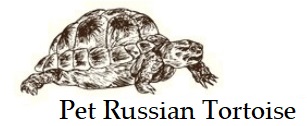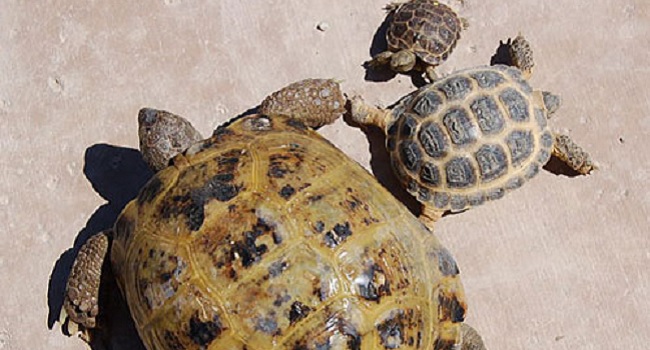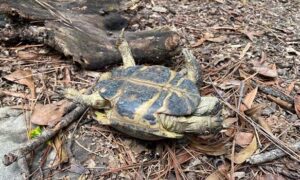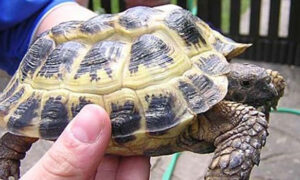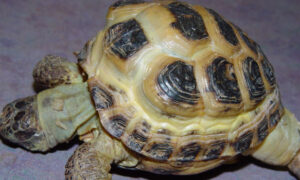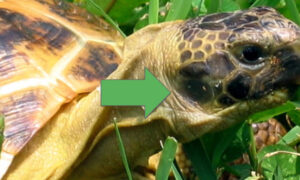Aging a Russian tortoise is often a topic of conversation in tortoise forums and other online groups…
How old do you think my tortoise is?
If you purchased your tortoise as a baby from a breeder, the breeder would be the best source to find out how old your tortoise is. However, if you adopted your tortoise, the previous owners MAY have told the rescue how old the tortoise is.
If you are really curious about the age of your tortoise, guess the age by the size of the tortoise. However, keep in mind that tortoises grow at different paces. It can take about 2 – 3 years for a Russian tortoise to reach 4 inches long. It can take up to 15 to 20 to reach full size.
There are different factors that can affect growth. Depending on how the tortoise was raised, the rate at which is grew will vary. If the tortoise was housed in a dry environment, it likely grew much slower than one in a humid environment. If the owner, or breeder, fed the tortoise a low-fiber diet, the growth was likely stunted. Illnesses can also stunt growth.
Also keep in mind that males and females grow differently. Females are often larger than males, so this can play a part in guessing the age of your tortoise, as well.
How to Tell The Age of a Russian Tortoise
Count the rings. Some people claim that counting the rings on a tortoise is about like counting the rings on a tree. The “rings” on a tortoise, mark periods of growth. In theory, each ring equals one year. The issue with this method is that if there are large periods of fast growth, or slow periods of growth, this can affect the ring size. A good 6 month period of growth doesn’t equal one year of life. Plus, some tortoise just naturally grow slower.
Ask a qualified reptile veterinarian. This could work or at least give you an idea, but the different factors that can affect growth can cause variations in the age estimate. For example, a tortoise that was not fed or housed properly or fed a correct diet could be smaller and malformed. A tortoise with a shell condition, like dents, scarring, missing scutes, etc., may appear to be much older. No matter how good your vet is, he may age the tortoise younger or older than it really is. Appearance isn’t always a factor on age. Bad health can wear down the body, just like people who suffer chronic health conditions; the body may look older.
